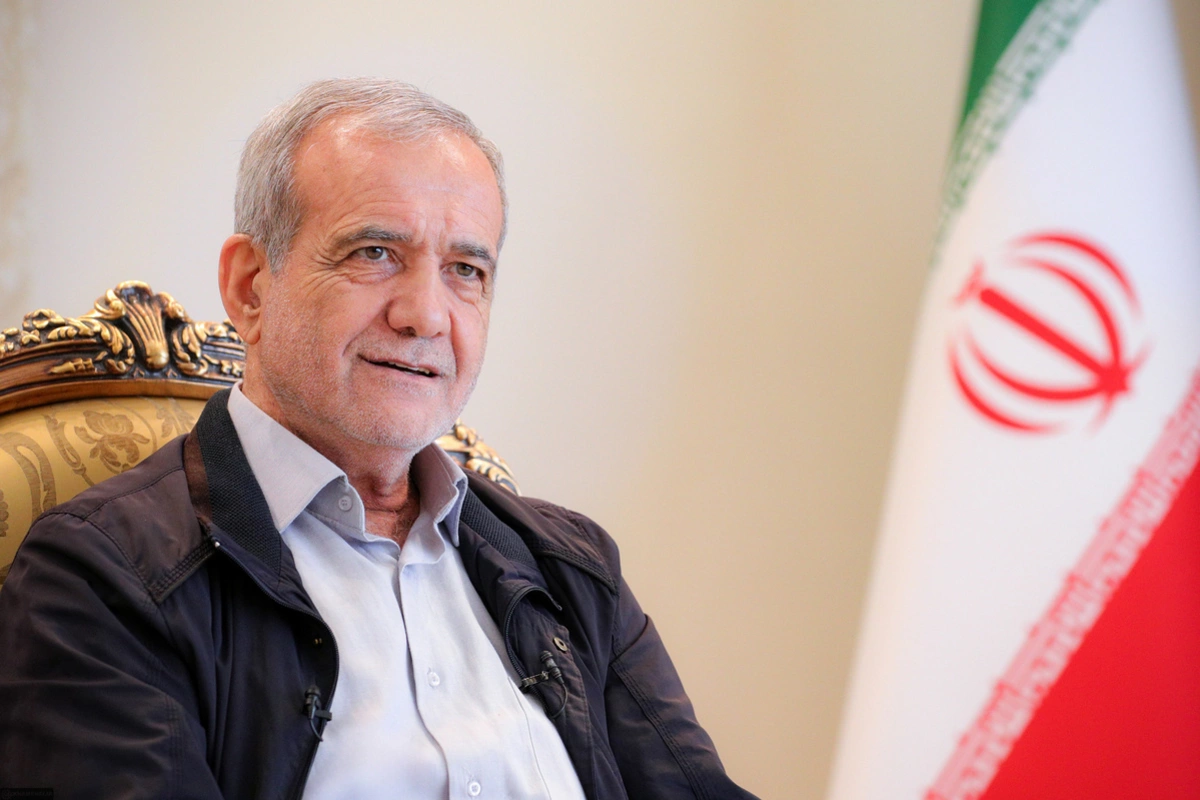
Azerbaijani Turks of Iran have for years felt that Tehran has taken little notice of their specific grievances. However, with the recent election of Masoud Pezeshkian, himself having Azerbaijani roots, hopes for action are suddenly rising.
Image: Wikimedia Commons
The people of northwestern Iran have long felt sidelined politically, but there are three particularly pressing issues that many agree need attention: the use of the Azerbaijani language in education, the ecological catastrophe of Lake Urmia, and concerns over mining. Since his surprise election as Iran’s new President in July, Masoud Pezeshkian has made commitments to address these issues, a posture that he re-iterated in an interview with journalist Rashid Daneshjoui given in Azerbaijani Turkish on August 24th.
On education, Pezeshkian stated unequivocally that "We must fulfill the rights of the people in Azerbaijan, including the right to our language, which is enshrined in Article 15 of the Constitution. This is the law.”
The legal article he referenced grants limited permission for the “use of local and ethnic languages in the press and mass media, as well as their teaching in schools alongside Persian,” but in reality, till now, Turks and most other non-Persian communities in Iran don’t have access to education in their mother tongues.
Regarding the drying up of Lake Urmia, which has caused years of environmental and political unrest, Pezeshkian insisted that work had already begun and would be continued, pointing out that there are over 20 sub-projects in the pipeline whose implementation and continuation should help revive the lake.
Less well reported internationally is an issue over the opaque operating procedures of the operator of the Sungun Copper Mine in Varzaqan, East Azerbaijan, a company that holds the rights to exploit half of all Iran’s copper reserves. Azerbaijani Turks are vocal in demanding that revenues be better managed and invested in a way that ensures regional prosperity.
In his interview, Pezeshkian appeared to agree, pointing out that “it’s not just Sungun. For example, there are gold mines. There are many mines there (in Azerbaijan) that we must put in order. With God's help, we will put them in order."
Reactions in the Persian language press focused less on the issues than on the fact that Pezeshkian had given the interview in Azerbaijani Turkish. The Shargh newspaper suggested that this was a sign of the Iranian president “falling into the trap of ethnocentrism” while insisting that the interview “does not address the country's main issues but focuses on ethnic matters.” The criticism comes from a conventional Iranian viewpoint of centralized management. However, in a September 3 meeting, this very principle was one that Pezeshkian suggested needs reconsidering. Noting the disparity in economic development between different regions of the country, he stressed the importance of increasing the powers of provincial governors and reducing centralization in the country's governance system.
"We need to change our perspectives so that we can address these issues based on justice. Both the eastern and western parts [of the country] are poor. In Kurdistan, Azerbaijan, and Khuzestan, which have oil, gas, land, and water, the people's situation is much worse than in Mashhad. We need to think about establishing justice in society," he stated.
“In the past, local governments and governors would send funds to higher authorities, but now everyone is asking for money. Well, let's change this rule; I'm not saying it should be exactly like in the past, but we must abandon the centralized system, where some people sit at the top thinking they know everything, while this system assumes that those at the bottom understand nothing. This system must be eliminated."
How much President Pezeshkian can actually achieve remains to be seen. Whatever his hopes, his actions are likely to be hamstrung by Iran’s political multipolarity, with much real power in the hands of Iran's Supreme Leader, Ayatollah Ali Khamenei, who guided the choice of the Pezeshkian cabinet.
Share on social media